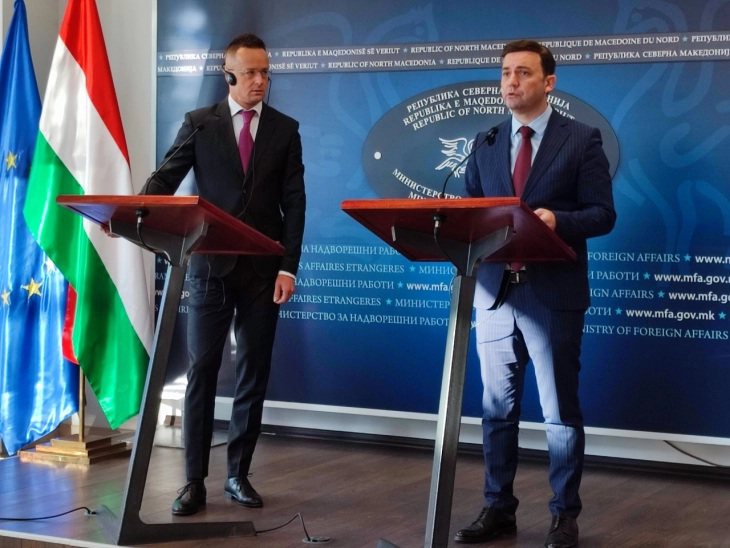Hungarian FM: Unfair by EU not to open negotiations with Skopje

Skopje, 20 December 2021 (MIA) – To not open negotiations with North Macedonia was unfair by the EU, because the country had done all it was required to start negotiating, Hungarian Minister of Foreign Affairs and Trade Péter Szijjártó told a joint press conference in Skopje along his Macedonian counterpart Bujar Osmani.
We, he said, are not satisfied and frustrated with the conclusions in Brussels about the enlargement and we consider all the decisions unjust.
According to the Minister, the EU if it had wanted to be honorable, it should have opened talks with North Macedonia and Albania this year.
“Respectfully, we ask our friends in Bulgaria its national issues the country considers an obstacle to close them during the negotiations rather than by hindering the start of the negotiations,” said Szijjártó.
Delay of the start of negotiations undermines the EU’s credibility, he added, because on one side the EU has acknowledged that the Macedonians had made a huge progress, while in the other it wouldn’t approve the opening of negotiations.
“We consider this situation harmful, dangerous against the EU principles from the point of view of security and the point of view of economic development,” noted Szijjártó.
Hungary, its top diplomat said, demands that negotiations with North Macedonia and Albania should be approved immediately.
“The EU is facing historic challenges and we deem enlargement a success for the EU. Hungary will do everything possible enlargement to be accelerated toward the Western Balkans,” Szijjártó stated.
North Macedonia, the Minister said, plays an important role in stopping migration flows as it is on the main route of migration. He announced that 30 Hungarian police officers will arrive in the country in early January to help Macedonian police better guard the borders.
FM Osmani, commending the success of Slovenia’s EU presidency in securing consensus over the EC reports on the Western Balkans countries and the EC conclusions on the region, said the EU remains committed to the Western Balkans despite the challenges.
“However, this partial success here, in the country, was overshadowed by the Union’s failure to provide consensus to realize its own March 2020 decision to approve opening of negotiations with North Macedonia and Albania. We are aware that EU Council decisions are made with consensus, however less and less people in our countries have understanding over the way this privilege is used by the member countries,” said Osmani.
Without a doubt, he added, trust in the enlargement process is at a historic low, which threatens the credibility of the bloc and creates fresh crises in the region.
“However, we remain committed to the EU integration process and we continue to work with our neighbors intensively. We’ve gone too far in the process to give up now, but I hope with the new political structure we will launch a new visionary process of trust between the two countries,” Minister Osmani said noting his country expected the new government in Sofia to demonstrate European sensibility, partnership and care for the neighbors.







